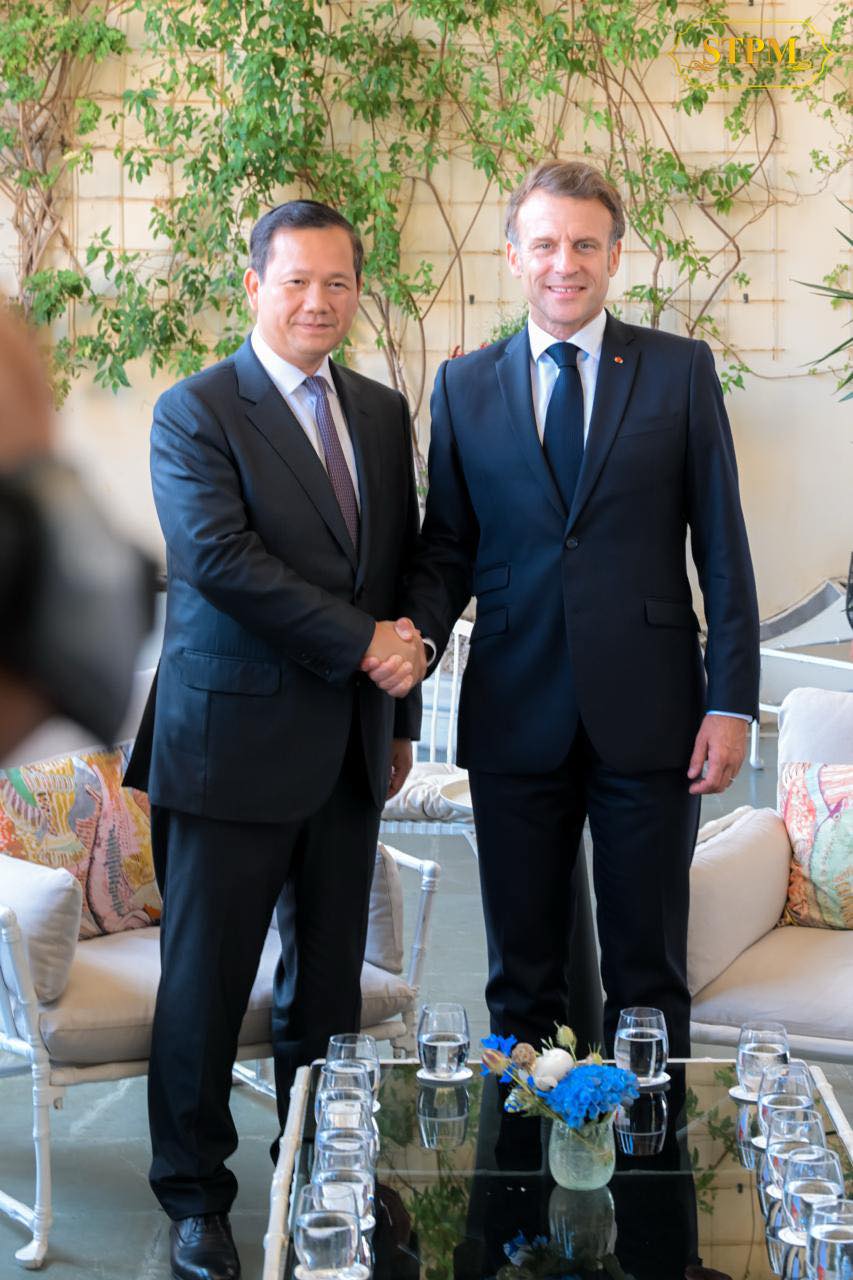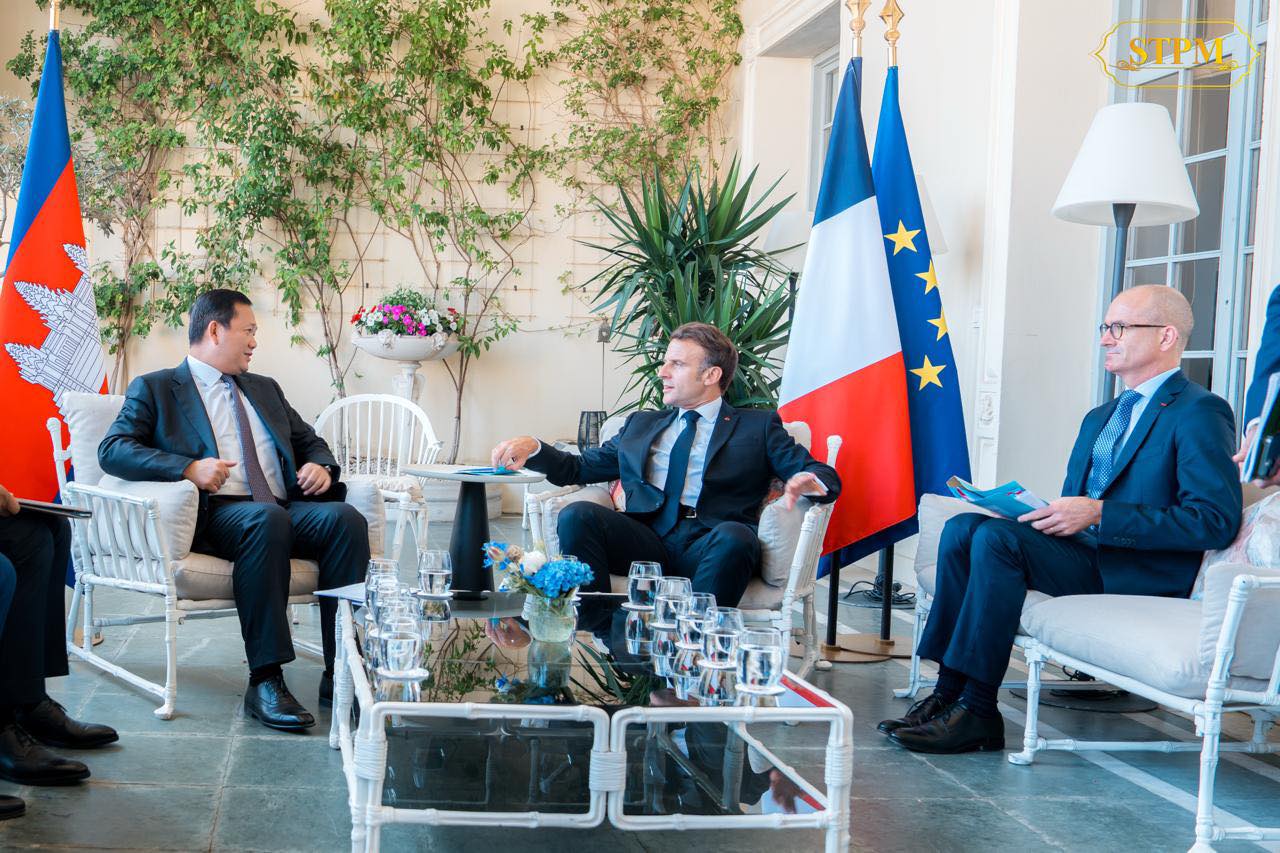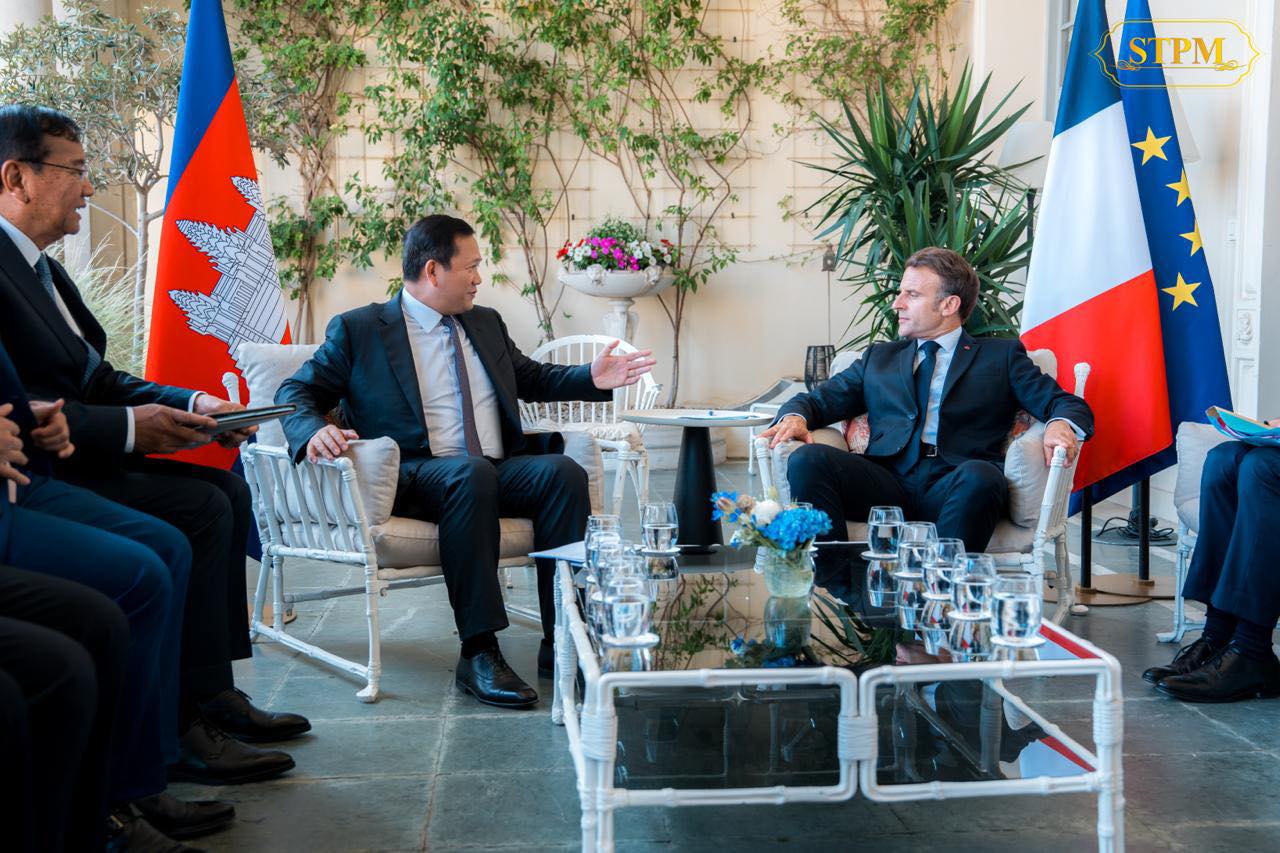The development of relations from a status of a French colony to a potential strategic partner is an extraordinary development. This could be a diplomatic step for Cambodia to pave the way for a broader diplomatic path in Europe.
The announcement by Cambodian Prime Minister Hun Sen from Nice after a meeting on the sidelines of the 3rd United Nations Conference on Oceans (UNOC3) is a proud piece of news for Cambodia.
With the roadmap that Cambodian and French officials will prepare, we hope it will be completed during Emmanuel Macron’s visit. The French President is visiting Cambodia and will attend the 20th Francophonie Summit in 2026.
If the “strategic partnership” agreement is indeed signed at that time, it will be a historic turning point and a huge change for Cambodia, which can transform itself into an equal partner with France, which was once its protector, based on mutual benefit and respect.
The relationship between Cambodia and France has long been unique. As Cambodia’s former colony, France played a role in shaping the country’s administrative, legal, and educational systems. After independence, the relationship has evolved through continued cultural, linguistic, and development cooperation. Today, a significant number of Cambodians study or live in France, and French is still used in the Cambodian education system.
This possible strategic partnership would formally deepen cooperation in key areas such as trade, education, technology, security, and regional diplomacy. France, a leading power in the European Union and a permanent member of the United Nations Security Council, could be a powerful advocate for Cambodia on the international stage.
For Cambodia, despite its small size and former French protectorate status, it could also give France a stronger foothold in Southeast Asia, an increasingly important region in maintaining the geopolitical balance between China, the United States, and the European Union.
In addition, such partnerships can help Cambodia diversify its diplomatic and economic relations more broadly. Cambodia has signed agreements to enhance this relationship with China, Japan, South Korea and neighboring countries, and some of these countries have also promoted it to a higher level, called the Comprehensive Strategic Partnership Agreement, but with France it is the beginning of expanding relations to Europe.
At present, Europe, with France as the big brother, is Cambodia’s second largest export market, and in France itself, although trade and investment are not large, the benefits between the two countries are not small.
In the first five months of 2025, Cambodia imports from France approximately $45.5 million and exports approximately $186 million. In addition, France also has many investors in Cambodia, such as energy companies, airport management companies, banks, and several other projects.
In short, preparing a roadmap for a future strategic partnership will not only enhance Cambodian-French relations, but will also reflect Cambodia’s broader ambition to assert itself as an active, balanced, and global player in a multipolar and globalizing world.
 /
/

 </f
</f

